
Today’s sports nutrition has become a science. Physically demanding activities require additional dietary support to enhance performance, endurance and a speedier recovery. Depending on the training objectives, the daily incremental food partitioning becomes critical. Natural Medicine as well has become go-to therapies. Learn about natural remedies and nutritional protocols to ease the discomfort and enhance performance due to sport related injuries.
Smaller meals eaten more frequently throughout the day, accompanied with various supplements are individualized to the sport and the athletic performance desired.
High volume, intense training or recovery from an injury increases the bodies need for essential nutrients. Quality nutrition is as important as the exercise techniques. The diet must enhance nutrient absorption, digestion, anabolism (metabolism of nutrients used to build cells such as new muscle or bone), and increase metabolism (convert nutrients into energy). Protein is essential for providing structure to the body, building lean muscle and accelerating metabolism.
Sports injuries increase the demand for proteins. The peptides found in whey boost immune function and act as natural painkillers. High tech methods of extracting the peptides from whey are now accomplished without the use of high temperatures. As a result the absorption, digestion and nitrogen disposition has been enhanced. Maintaining a positive nitrogen balance is critical for recovery from an injury and tissue growth.
Overtraining coupled with inadequate nutrition can result in persistent muscle pain and mood swings. Continued physical stress upon the body lowers the immune system, increasing susceptibility to colds and infections.
Sleep deprivation puts an athlete at risk to injury. The mind, nervous system and injured tissues require rest in order to repair and rejuvenate. Otherwise timing and coordination may be off causing bodily harm from physical impact.
High intensity training and exhaustive exercise programs induce free radial damage in muscle tissue. This oxidative stress not lactic acid is responsible for the inflammation and soreness after a workout or competition. Antioxidants minimize tissue oxidation caused by free radicals and support the liver, blood, joints and brain from their negative effects. Alpha lipoic acid is an excellent antioxidant. Vitamin E, C and selenium are others which work synergistically when taken together.
Nutritional Support
Nutrient rich, low fat meals eaten more frequently will elevate an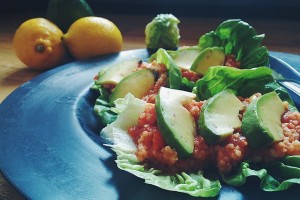 athlete’s metabolism and stabilize energy levels. The speed at which the body converts stored energy into usable energy is referred to as a metabolic rate. The greater your lean muscle mass the greater your metabolic rate. Also, the amount of calories consumed and burned up through exercise impact this rate and your metabolism.
athlete’s metabolism and stabilize energy levels. The speed at which the body converts stored energy into usable energy is referred to as a metabolic rate. The greater your lean muscle mass the greater your metabolic rate. Also, the amount of calories consumed and burned up through exercise impact this rate and your metabolism.
Professional and amateur athletes alike require whole foods rich in enzymes, antioxidants and high quality protein. Protein provides nutrients essential for building muscle, hormones, enzymes and amino acids. Quality proteins include chicken, turkey, fish (ocean, cold water), lean beef, whey, low fat cottage cheese and yogurt.
Whey powder (alkaline protein) is convenient to use and may be added to juices, smoothies and shakes. This source of protein can also be a meal replacement or incorporated into cereals and baked goods. Alternatives to animal protein include soy, legumes, nuts, seeds, and gluten based grains.
Carbohydrates represent an important fuel source providing natural sugars and energy. Brown rice, potato, yams, oatmeal, barely, kasha, whole grain pasta are good examples. Vegetables and fruit are high in fibre, enzymes, antioxidants, vitamins, minerals and low in calories.
Essential fatty acids (EFA’s) increase athletic function, tissue elasticity and muscle flexibility. EFA’s are not manufactured by our bodies and must be obtained through the diet. Quality choices of these fats (linoleic and alpha linolenic) are found in hemp, flax seed, pumpkin seed, borage, safflower and fish oils.
Adequate consumption of clean, pure water before a workout and during an event will keep the body hydrated and cool. Dehydration can lower performance and promote tissue damage.
RICE is the first applied treatment and standard therapy for almost all sport injuries. RICE stands for rest, ice, compression and elevation.
Natural Medicine for Pain and Inflammation
To aid the healing process and pain accompanying injured athletes, 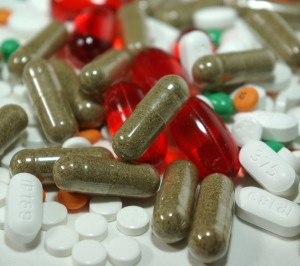 many sports physicians are prescribing natural supplements.
many sports physicians are prescribing natural supplements.
Arnica has become a popular choice for sports injuries involving shock, dislocations, bruising, sprains, muscle, head blows, pain and swelling.
Apply Calendula cream or lotion to bleeding superficial cuts, scrapes, blisters and burns. Calendula inhibits infection. Other botanical creams and salves include aloe vera gel, burdock, chamomile, comfrey, Echinacea, goldenseal, meadowsweet, plantain, rue and witch hazel.
Glucosamine and MSM (methyl-sulfonyl-methane) are sulphur compounds essential for building tendons, ligaments, cartilage and synovial fluid. Taken in supplement form these compounds with their anti-inflammatory properties reduce pain while assisting the body in repairing injured tissue.
Bromelain is an enzyme derived from pineapple possessing excellent anti-inflammatory qualities. Best taken on an empty stomach otherwise its benefits would be lost to the other digestive enzymes. Bromelain reduces swelling and pain.
Curcumin is the yellow pigment found in Turmeric which stimulates the release of adrenal corticosteroids a defense mechanism against stress and promotes tissue growth. It also reduces pain, swelling and acute inflammation.
Amino acids may be taken together or singularly to form stronger scar tissue, strengthen the immune system or accelerate the healing of bone and tissue. Ornithine alpha-ketoglutarate (OKG), arginine, N-acetyl-cysteine and lysine are examples. DLPA (D, L-phenylalanine) is more effective for chronic pain. Creatine, glutamine, tyrosine or taurine are essential to conditioning with heavy or intense training loads.
Failing to undertake proper exercise and training techniques may end in injury. Monitoring an individual in the early fundamental stages of learning is crucial to avoid bad habits. Supervision throughout the program is also essential to maintain quality standards and to excel the athlete in their chosen sport. Adequate warm-ups and stretching often prevent injury. Stretching also improves flexibility, enhances strength and performance. Prevention in the form of nutrition and proper exercise guidelines will decrease emotional stress as well as physical overexertion.
Copyright © 2016 – All Rights Reserved – Michelle Honda Ph.D.
Announcement
Look for my new forthcoming books “Reverse Heart Disease Naturally” (Jan.31, 2017) and “Reverse Inflammation Naturally” (May 31, 2017) and “Reverse Thyroid Diseases Naturally” (Fall 2017)
Where to Purchase Reverse Gut Diseases Naturally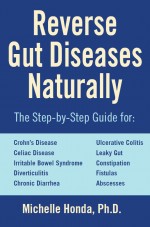
Hatherleigh Page Buy Book RGDN
Local book stores USA and Canada
Introduction: What You Will Find in my Blog





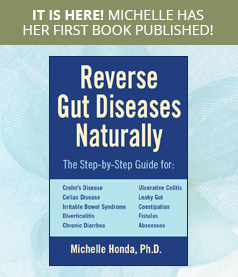

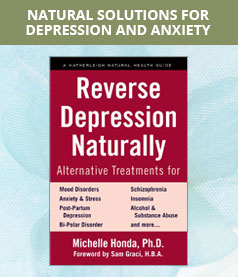
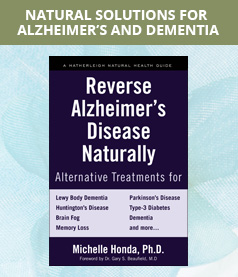
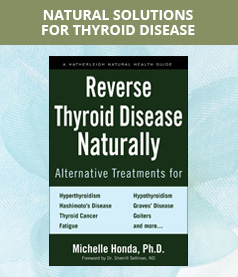

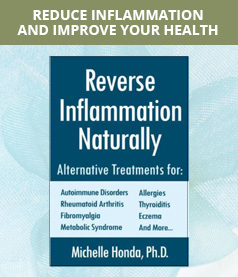
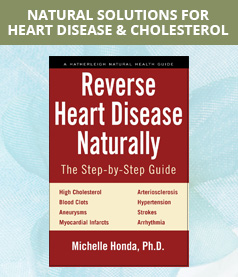
Follow Us!